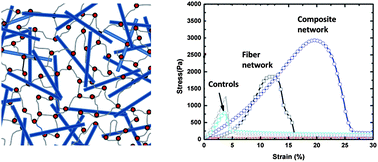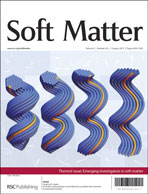Enhanced rigidity and rupture strength of composite hydrogel networks of bio-inspired block copolymers
Abstract
We study self-assembled composite networks consisting of silk-like

- This article is part of the themed collections: Emerging Investigators and Silk and silk-inspired materials

 Please wait while we load your content...
Please wait while we load your content...